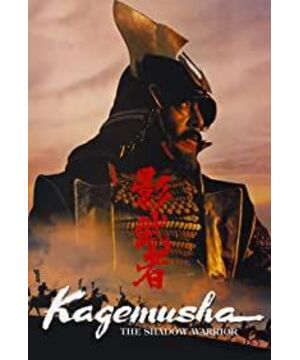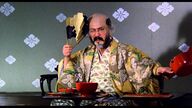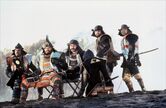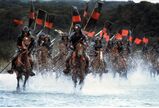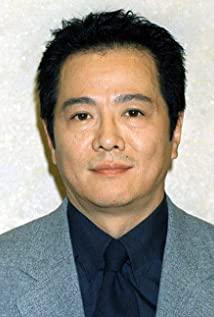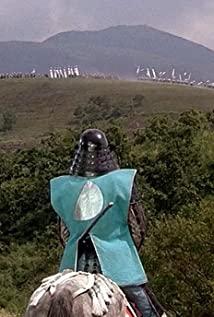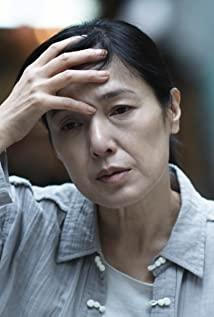One person lives at the height of the temple, the other person is far away from the rivers and lakes; one person should be alive but dead, another person should be dead but still has to live. If it weren't for the similarity in appearance, the two would not have any intersection. Xinxuan was stunned before he left his apprenticeship, and when he was dying, he had a premonition that his family would be destroyed and the country would be destroyed. After Xinxuan died, the "shadow" was left alone. In other words, the person is dead and the character still exists. The relationship between the human body and the social role of the person becomes unpredictable in the film. People can either prostrate and kneel before the "shadow" pretending to be the protagonist, or they can scold and insult the puppet himself. Xinlian and Shenglai both know the inside story, but both try to use the "shadow" to achieve their own goals, and each of them is deliberately maintaining that fragile dream bubble. Here, whether it is Shingen who is as motionless as a mountain, or Shingen's "shadow" who is as motionless as a mountain, it is nothing more than a symbol, a brand, or even a placebo, just like another film "Cut the Belly" starring Daiya Nakata. The armor in the middle, with murderous aura in the majesty, in fact, there is nothing in the middle. Why wasn't Xin Xuan a shadow before his death? Nobunaga and Ieyasu are also shadows? Humans are abstract animals. In history, people have always created such symbols, armors, and shadows for themselves... Even abstract shadows have replaced people themselves and become the meaning of everyone's life. The same is true for the person who is the shadow. . Perhaps when Nobunaga recited "Fifty Years of Life", it was precisely the sympathy in the hearts of these "shadow" characters!
View more about Kagemusha reviews


